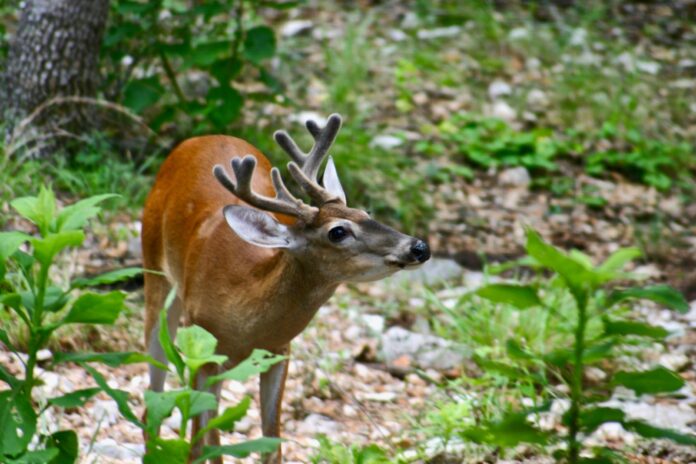The Ministry of Water, Lands and Resource Stewardship is asking for more samples from across the province and Vancouver Island after chronic wasting disease was confirmed for the first time this year in wild BC deer.
Cait Nelson, wildlife health biologist with the Provincial Wildlife Health Program, says it is an infectious disease that affects cervids, such as deer, elk and caribou. It is caused by an abnormal protein, called a prion, that accumulates particularly in the central nervous system and the brain.
Nelson says this causes damage to brain tissue leading to a neurological disease and a 100 per cent fatality rate. She adds it can be difficult to manage because it is not obvious.
“Animals that are infected with chronic wasting disease don’t generally show outward symptoms,” said Nelson. “Most of the animals that test positive are actually healthy-looking, hunter-harvested animals.
“Towards the end late stages, there can be some changes to their behaviour where they may present being lethargic, or not afraid of people. They become more vulnerable to being hit by a car.”
Nelson adds they also can show weight loss and other characteristics, but they are otherwise known as “silent carriers.” Animals also can shed prions into the environment, where they can live for many years and are “essentially indestructible.”
The first cases of the disease were reported in the U.S. in the 1960s. However, Nelson says they did not really know what they were dealing with at the time. It would eventually expand over the next couple of decades and make its way into central Canada through farmed elk in the 1990s.
Human transport helped continue the spread, along with animal spread. B.C. started precautionary testing in the early 2000s.
“There’s a potential for this disease to not only move around through animals, but it can be spread to new areas through the transport of infected carcasses or through the movement of contaminated plant material like hay and grain,” said Nelson.
Two cases were confirmed on Jan. 31 by the Canadian Food Inspection Agency in deer south of Cranbrook. The disease is expected to continue to spread to other areas of the province including Vancouver Island and the Sunshine Coast.
Nelson says they are keeping their focus on the Kootenay region for now, but it could also come from other places outside of B.C. and show up anywhere. She adds it is expected that the deer population and demographics could take a large hit, and they need to be on top of testing and samples.
As far as human health goes, Nelson says there is no direct evidence the disease can be transmitted to humans, there is still a lot they do not know about prion diseases.
“The advice from public health is any animal [that] is infected or even suspected to be should not be eaten,” said Nelson. “That creates barriers to whether it is a real risk to humans or just a perceived risk, there’s barriers for folks that access game for food and that can spill over to wildlife-related businesses.”
They ask you to report any observations to the Conservation Officer Service RAPP line. Nelson says hunters are very important because they can provide samples for testing, but more help is needed.
“We’re really not meeting our targets for sampling to provide any kind of confidence in whether the disease is [in other parts of the province] or not,” said Nelson. “If somebody asked if chronic wasting disease is on Vancouver Island, we don’t think so, but we can’t really say for sure because we aren’t testing enough animals.”
Nelson says hunters in the area who travel to Alberta and bring back carcasses could unknowingly be bringing back the disease and allowing it to establish itself on the Island.
Anyone willing to provide samples is asked to go to the BC CWD website for resources and a list of freezer locations across the province.
Nelson adds partnerships with hunters and organizations are vital in preventing the impacts of the disease.






